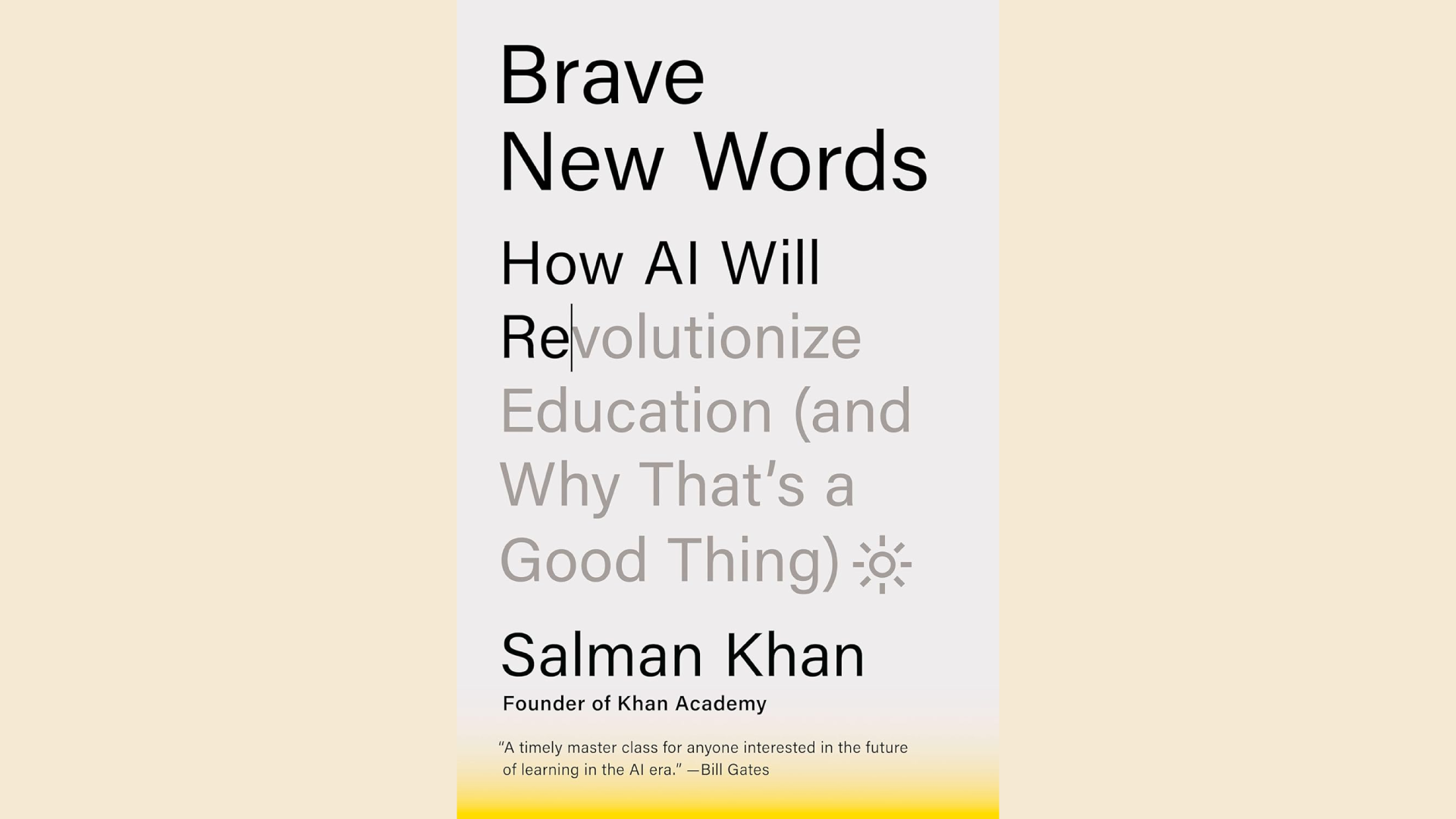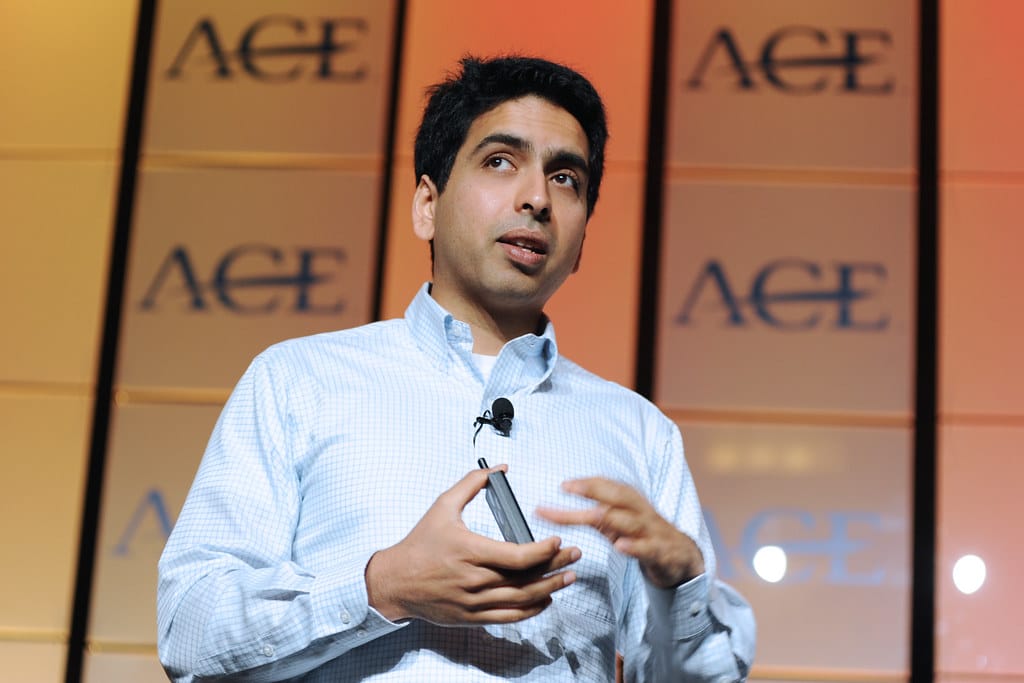Summary: Brave New Words by Sal Khan

As we stand on the brink of a technological revolution in education, Sal Khan, the visionary founder of Khan Academy, provides a masterclass on the potential and challenges of artificial intelligence (AI) in his latest book, "Brave New Words." This blog post delves into the key insights and practical recommendations from Khan's work, offering educators, administrators, and parents guidance on integrating AI into learning environments.
Personalizing Education Through AI
AI offers unprecedented opportunities for personalizing education. AI can tailor lessons by analyzing individual learning patterns to match each student's pace and learning style. This capability boosts engagement and enhances academic achievement by focusing on areas where students need improvement. As Khan eloquently puts it, "AI can personalize learning by adapting to each student’s individual pace and style, identifying strengths and areas for improvement, and offering tailored support and feedback." As educators, embracing AI means adopting tools that can provide detailed insights into student performance, enabling targeted interventions that could revolutionize educational outcomes.
Enhancing Teacher-Student Interactions
Khan argues that AI should not replace teachers but rather augment their capabilities. "Embracing AI in education is not about replacing human interaction but enhancing it," he notes, emphasizing the enrichment of the educational process through technology. By automating administrative and repetitive tasks, AI frees teachers to focus on what they do best—inspiring and interacting with students.
This shift can enhance the educational experience, allowing teachers to concentrate more on fostering critical thinking and creativity. Schools looking to implement AI should focus on training teachers to integrate these tools effectively into their teaching practices.
Preparing for a Digital Future
In today's rapidly evolving digital landscape, preparing students for future careers is more crucial than ever. Khan highlights the importance of using AI in teaching practices and educating students about AI. Understanding AI technologies, their applications, and ethical considerations will be vital for students to thrive in the future workforce. Educational curricula must incorporate AI literacy to equip students with the skills necessary to navigate and succeed in a digital world.
Addressing Ethical and Social Implications
While AI presents vast opportunities, it also brings challenges, particularly regarding ethics and equity. Khan stresses the importance of developing AI tools that are both ethical and unbiased. Educators and AI developers must collaborate to ensure that AI tools respect privacy, maintain data security, and are free from biases that could perpetuate inequalities. AI in education must be used to bridge rather than widen the educational divide.
Broad Societal Impact
"Brave New Words" also explores AI's broader impact on global education systems. Khan envisions a world where AI can provide high-quality educational resources to underprivileged areas, democratizing access to learning and offering equal opportunities for all. This vision calls for strategic partnerships between academic institutions, tech companies, and policymakers to harness AI's potential to transform global education landscapes.

About Sal Khan
Salman Khan, the author of "Brave New Words," is a pivotal figure in educational technology. As the founder and CEO of Khan Academy, he has pioneered free online education for anyone, anywhere. His vision began with simple tutoring sessions for his cousin, which became a massive open online course platform reaching millions.
Khan's background includes three degrees from MIT and an MBA from Harvard Business School. Recognized by Time as one of the 100 Most Influential People in the World, Khan's commitment to educational equity continues to shape learning in the digital age.
Implementation Strategies
Khan provides actionable advice for the practical implementation of AI in schools. Key strategies include:
- Infrastructure Development: Establishing the necessary digital infrastructure to support AI tools.
- Teacher Training: Providing comprehensive training for teachers to effectively integrate AI into their teaching methods.
- Policy Formulation: Develop clear policies and guidelines on using AI in schools to address ethical concerns and ensure equitable access.
Conclusion
Sal Khan’s Brave New Words is not just a book about educational technology; it's a blueprint for the future of learning. By leveraging AI, we can enhance educational practices and prepare our students for a future dominated by digital technologies. As we navigate this brave new world, educators and policymakers must consider both the transformative potential and the ethical challenges AI presents in education.

Checklist for Implementing AI in Education
To effectively integrate AI into educational settings based on insights from "Brave New Words," consider the following 10-point checklist:
- Evaluate Educational Goals: Define what you hope to achieve with AI in your educational context.
- Select Appropriate AI Tools: Choose AI tools that align with your educational goals and the needs of your students.
- Develop Digital Infrastructure: Ensure that the necessary digital infrastructure is in place to support the deployment of AI tools.
- Train Educators: Invest in comprehensive training for educators on how to use AI tools in their teaching effectively.
- Promote AI Literacy: Include AI literacy in the curriculum to prepare students for digital advancements.
- Address Ethical Considerations: Establish guidelines for ethical concerns, such as data privacy and bias in AI applications.
- Foster Collaboration: Encourage collaboration between educators, technologists, and policymakers to integrate AI effectively.
- Monitor AI Integration: Continuously assess the effectiveness of AI tools to ensure they meet educational objectives.
- Gather Feedback: Solicit feedback from students and educators to improve AI integration practices.
- Promote Inclusivity: Ensure that AI tools are accessible and adaptable to meet the diverse needs of all students.
This comprehensive approach will help educators and administrators effectively harness the potential of AI to enhance educational outcomes and foster a more inclusive learning environment. As we navigate this brave new world, educators and policymakers must consider both the transformative potential and the ethical challenges AI presents in education.
This exploration of Khan's insights provides a foundational understanding for those looking to effectively integrate AI into educational settings. By adopting these strategies, educators can ensure that AI is a powerful ally in the quest for a more personalized, engaging, and inclusive educational system.
